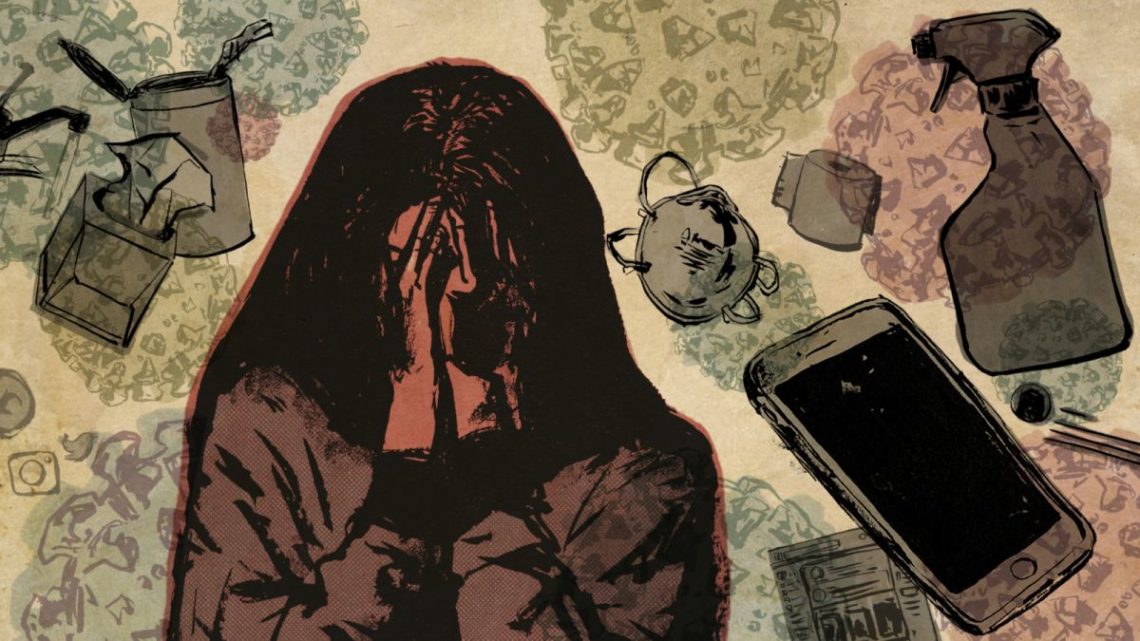How the Coronavirus Effects Mental Health
Abigail Ernst
We all know the Coronavirus is disrupting every aspect of our lives, from work, to school, hanging out with friends, or just going outside. However, the Coronavirus is also affecting something that you might not notice, your mental health.
According to the Harvard Gazette, there is an increase in stress and anxiousness due to the pandemic. Results from the Kaiser Family Foundation’s survey found 19% of people said the pandemic has a major impact on their mental health and 45% of adults said their mental health was negatively affected by the pandemic.
The Kaiser Family Foundation explained that people’s main stressor was their jobs, worrying in regards to the economy or loss of income from being laid-off. There is also the pressure of being an essential worker, working long hours, and for healthcare workers in particular, not having enough PPE equipment. Healthcare workers stress also includes attending to patients, providing medical care, and providing psychological support since family members cannot be present.
Research has also shown, people losing their jobs leads to an increase of stress, depression, low self-confidence, alcohol and drug addiction, along with suicide.
The stress of the Coronavirus has affected people that may not otherwise have stress because of necessary social distancing which may cause isolation from our friends and family.
In a study by Science Direct, social isolation has led to an increase of loneliness, all-cause mortality, and cardiovascular problems.
The Huffington Post found more people will develop agoraphobia, a fear of leaving your home, along with an increase in depression, anxiety, and suicide. While doctors do not know the exact long term effects of the Coronavirus yet, they believe kids will be impacted in the long term due to not having proper schooling and social interactions.
However, researchers have been studying the effects of the SARS outbreak in China in 2003 and the Ebola outbreak in Africa to see the long term effects of those diseases and how it can be interpreted for Coronavirus.
The CDC found that in China with that SARS virus, generalized fear affected many people and their trust in the government. With the SARS and Ebola viruses, long term effects, such as depression, anxiety, and PTSD were found in survivors, healthcare workers and people quarantined.
However, according to Forbes, the SARS outbreak from 2002-2004, shows some positive mental health effects as well. The research showed strengthening in relationships with family and friends. Also, 40% of people relied on their families and friends for mental health support. In the long term, more people became more aware of their mental health and decided to start focusing more on self-care as well as seeking professional help when necessary.
Along with these impacts of having more mental health illnesses because of COVID-19, there are also effects on your memory. Vice claims that we will not remember most of the events, especially quarantine, long after the pandemic. This is because people isolating at home did not experience traumatic events, unlike the front-line workers. The research of forgetting major events has been proven with other circumstances, like World War II.
Though the Coronavirus will not have a major effect on everyone’s mental health, it is important to become more aware of your own mental health. If you or someone you know is struggling with their mental health contact the Virginia Mental Health Hotline at 703.527.4077 or contact the Alexandria Mental Health Center located on 720 North Asaph Street.



